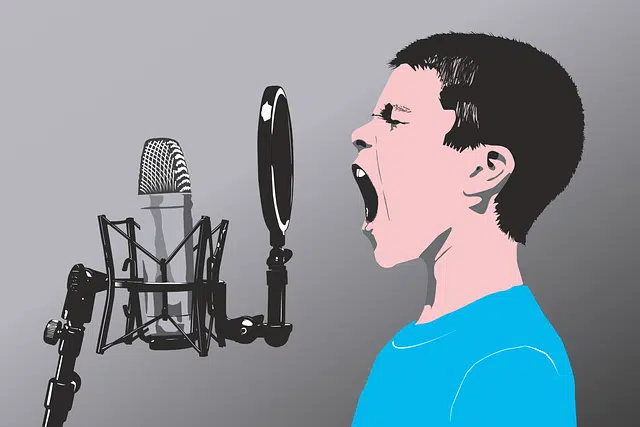
The sound produced by the vibration of the vocal cords is known as voice.
Voice is a word that comes from the Latin vox and that gives a name to the sound that is produced with the vibration of the vocal cords through the air that is expelled by the lungs and that comes out through the larynx. The term is also used to refer to the power, timbre and other properties of said sound.
The human speech apparatus , which allows the generation of voice, is made up of the organs we use to breathe (the trachea, bronchi and lungs), those intended for phonation (the larynx, pharynx, vocal cords ) and those we use for articulation ( tongue , lips, palate, teeth).
Various uses of the term
The notion of voice can refer to the sound produced by certain lifeless things (such as the wind ), to the expression or fiery speech, to the word or term, and to the singer, who expresses himself musically. For example: "I like to climb mountains to hear the voice of the wind" , "Sir, I'm going to have to ask you to lower your voice or I will be forced to call the security personnel" , "Limay is a Quechua voice that means noisy" , «Freddy Mercury was the lead voice of Queen» .
Other uses of the concept refer to the strength that certain issues obtain from the coincidence of opinions and the power to do something on behalf of another person: "The government has listened to the voice of the neighbors and will take note of the message from the ballot boxes." » , «I bring with me the voice of the martyrs of my people» .

Singers study and train to achieve mastery of their voice.
Voice mastery
Opera singers, who spend years preparing for their debut and who continue studying and perfecting themselves until the end of their careers, take on the difficult mission of mastering the voice , an instrument that has the particularity of always being carried with one, but also of being alive (in the full sense of the concept) and, perhaps its most peculiar aspect, of not being able to be seen or touched.
This turns singing classes into real challenges, which can only be overcome by those people who are capable of abstracting and correctly interpreting the advice of their teachers, generally adorned with absurd comparisons; for example: "to attack that note , you must imagine that you are sliding down a snowy mountain and that you swing your body backwards so as not to fall forward."
The variety of "practical" examples used in teaching singing to try to transmit technical knowledge is very wide and, as expected, very often generate more confusion than understanding. However, it is necessary to emphasize the difficulty of this task, since the professional singer relies on a series of sensations that he considers correct , and searches for them in each performance to ensure that he produces a pleasant and tuned sound, with the degree of intensity that he requires. requires the music at all times and with enough flexibility to adequately express a given piece.
Despite the dedication of many singers, who sometimes begin studying in their teens and who reject the leisure associated with their age in pursuit of a professional future, they are very rarely called "musicians"; A normal comment speaks of "the singer and the musicians." Even stranger is that the voice is considered an instrument. In the first case, those responsible are probably the divas, especially those stars of the last century, who put luxurious suits and dresses (plus hairstyles and accessories) before the art they were supposed to represent.
A morphosynthetic category
The notion of grammatical voice , finally, refers to a morphosyntactic category.
This category is linked to the verb and indicates the semantic link that exists between the object, the subject and the verb .
